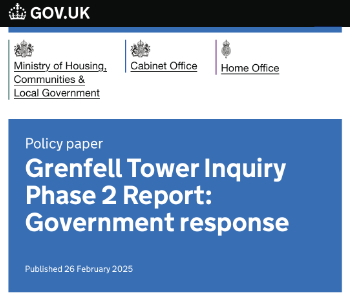ECA calls on Government to reform and rebalance energy levies and avoid cost of living crisis
Leading electrical and engineering services trade body ECA has responded to Ofgem’s announcement on 3 February 2022 that the energy price cap will rise by 54% to £1,971. ECA welcomes Rishi Sunak’s action to help taper the price rise by supporting middle- and lower-income households, but this is simply not enough.
Government must urgently address the inequalities between gas and electricity levies, and reduce our reliance on imported natural gas from countries such as Russia.
ECA Energy Solutions Advisor Luke Osborne said, “The severity of this announced energy price hike, and the threat this poses to millions of families across the country, can be remedied if the political will is there. While Rishi Sunak’s proposals will provide some respite for 80% of UK households, this will only be temporary. Longer term plans must be put in place to truly mitigate the cost of living crisis.
“Inequalities in the UK taxation system mean electricity is expensive and gas is cheap. Currently, electricity prices per KWh are around four times higher than gas. In the past, when electricity was more carbon intensive, this approach might have been logical.
“But renewable electricity generation is now cleaner than gas and projected to emit only half of the emissions resulting from heating from fossil fuels by 2025 (source: https://www.gov.uk/government/collections/carbon-valuation--2). The outdated levy structure does not reflect this.
“We are calling on the Government to urgently address the inequalities between gas and electricity levies to reflect the falling carbon intensity of electricity. This single move will have the effect of reducing fuel poverty, be good for business and crucially good for the environment.”
Currently, 23% of household electricity bills go towards social and environmental policies, while only 3% of gas bills go towards these.
Reducing levies on electricity will have the added effect of reducing the country's dependency on imported natural gas. This will prevent further exposure to volatility in global markets, making energy prices less vulnerable to price spikes. It would also make the UK less reliant on supplies from other countries, such as Russia.
ECA has also called on the Government to reduce VAT on battery storage systems, solar panels and heat pumps to encourage uptake and make it even more cost effective for households to make the switch to these technologies and feel the benefits of reduced energy bills in the long run.
For more information, see Energy price crisis: ECA calls for energy levy reform.
ECA works closely with industry and the Government to influence the development of energy-related policy, including the drive to net zero. It promotes energy efficiency, renewable power, and the development of battery storage as a means to promote lower costs and greater energy security.
This article was originally provided as a press release. It was distributed on 3 February 2022.
--ECA
[edit] Related articles on Designing Buildings
Featured articles and news
Sustainable Urban Drainage and Biodiversity
Awards for champions of these interconnected fields now open.
Microcosm of biodiversity in balconies and containers
Minor design adaptations for considerable biodiversity benefit.
CIOB student competitive construction challenge Ireland
Inspiring a new wave of Irish construction professionals.
Challenges of the net zero transition in Scotland
Skills shortage and ageing workforce hampering Scottish transition to net zero.
Private rental sector, living standards and fuel poverty
Report from the NRH in partnership with Impact on Urban Health.
.Cold chain condensing units market update
Tracking the evolution of commercial refrigeration unit markets.
Attending a conservation training course, personal account
The benefits of further learning for professsionals.
Restoring Alexander Pope's grotto
The only surviving part of his villa in Twickenham.
International Women's Day 8 March, 2025
Accelerating Action for For ALL Women and Girls: Rights. Equality. Empowerment.
Lack of construction careers advice threatens housing targets
CIOB warning on Government plans to accelerate housebuilding and development.
Shelter from the storm in Ukraine
Ukraine’s architects paving the path to recovery.
BSRIA market intelligence division key appointment
Lisa Wiltshire to lead rapidly growing Market Intelligence division.
A blueprint for construction’s sustainability efforts
Practical steps to achieve the United Nations Sustainable Development Goals.
Timber in Construction Roadmap
Ambitious plans from the Government to increase the use of timber in construction.
ECA digital series unveils road to net-zero.
Retrofit and Decarbonisation framework N9 launched
Aligned with LHCPG social value strategy and the Gold Standard.
Competence framework for sustainability
In the built environment launched by CIC and the Edge.
Institute of Roofing members welcomed into CIOB
IoR members transition to CIOB membership based on individual expertise and qualifications.
Join the Building Safety Linkedin group to stay up-to-date and join the debate.
Government responds to the final Grenfell Inquiry report
A with a brief summary with reactions to their response.




























Comments
Our mistake was comparing the cost of green electricity with fossil fuelled electricity instead of gas. Green electricity has a long way to go before replacing gas. Taxing gas may slow the development of green electricity technologies.